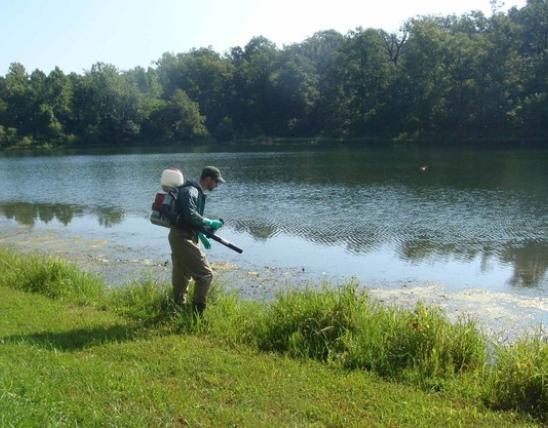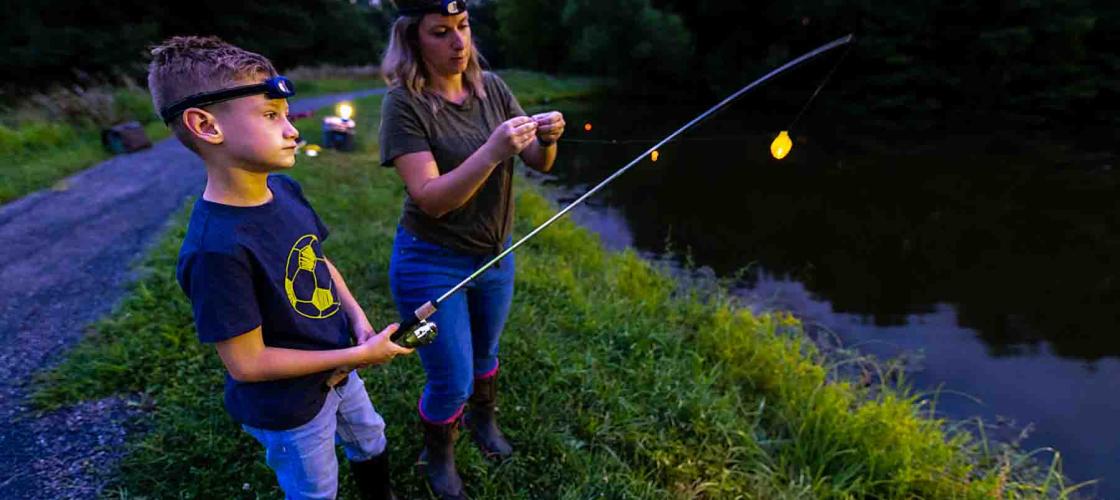
Have you ever wondered if fishing in a pond at night is better than fishing during the day? Many people claim to have better luck catching catfish at night. But why is that? Is it because people spend less time fishing during the heat of the day than they would during the cool of the evening? Or is it because fish are also less active during the heat of the day, striking more readily in the evening?
Fishing a pond at night is not much different than fishing during the day. We know that catfish feed mainly by sense of smell and do not need the light of day to find an angler’s bait, but fish that feed mainly by sight will also strike in the evening.
If you want to fish a pond at night, but don’t know where to start, this information should help get you started.
Light the Way
Make sure you can see what you are doing. Bringing lights along with you will be one of the biggest differences you’ll have compared to fishing during the day. A hands-free light source, like a lantern or headlamp, will allow you to see your way to your fishing spot, and will not interfere with your fishing gear while you’re fishing. An added benefit to lights is that they can also attract nighttime insects, like crickets, which can be collected and used for fishing.
Fishing with Bait
When fishing with worms, crickets, or other scented bait, you’ll need to be able to watch your bobber or rod tip to know when you have a bite. Your lantern or headlamp will help, but there are other items designed to help with nighttime fishing.
A float or bobber is commonly used when fishing with bait. The action of the bobber signals when fish are nibbling. But how can you use a bobber at night? You could continuously hold your flashlight beam on it while waiting for the fish, or you could use a lighted bobber. These ingenious bobbers contain small batteries and bright lights that can easily be seen in the dark. Simply attach the bobber to your line, turn on the light, and cast it out. The lit bobber floats and allows you to easily see its movement when a fish comes.
What if you don’t need to use a bobber? Fishing bells are made to clamp on the tip of your fishing rod and jingle when a fish is pulling on your line. The sound of the bells will be heard in the darkness and lets you know it’s time to grab your pole. Fishing bells are particularly useful when fishing for catfish.
Fishing with Lures
When fishing with lures at night, it’s best to choose lures that produce a lot of movement and noise. This will help sight-feeding fish, like bass, spot the lure. Chattering lures and spinnerbaits create sound and vibration in the water that fish can detect. Surface lures — like buzzbaits, jitterbugs, and poppers — are also a good choice because they create a splash or surface movement that the fish can zero in on.
Safety
As with any outing, it is always a good rule of thumb to let people know where you plan to be in case you need to be reached. Also, be aware of the weather and possible changing weather conditions and pack accordingly.
Fishing a pond at night can be a wonderful experience. Besides beating the heat and the shine of the blazing sun, you’ll also get to enjoy nighttime sights and sounds. Imagine fishing to the sounds of nearby frogs and crickets and the distant hoot of an owl, while the occasional bat flies by. With a little planning and preparation, you can be successful and have a great time night fishing at a nearby pond.
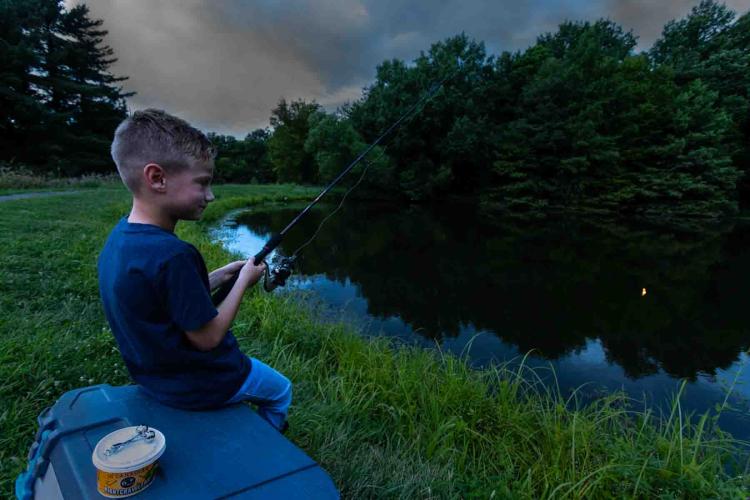
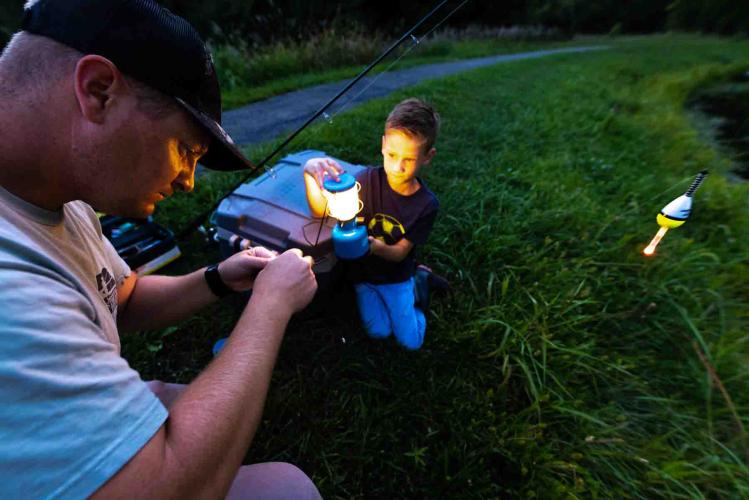
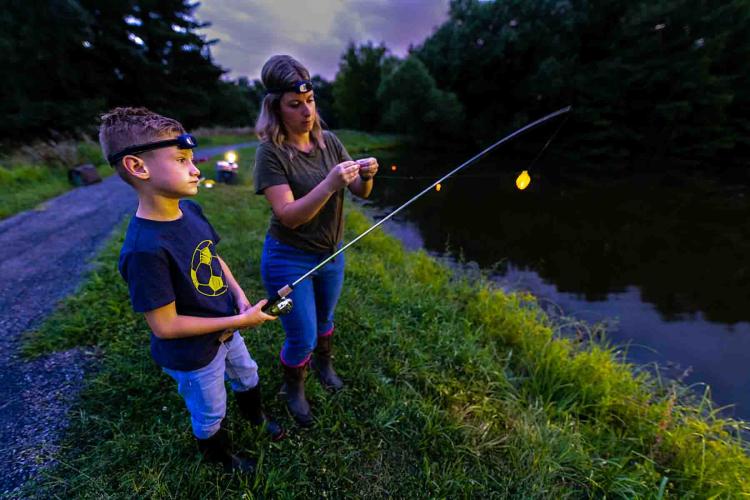
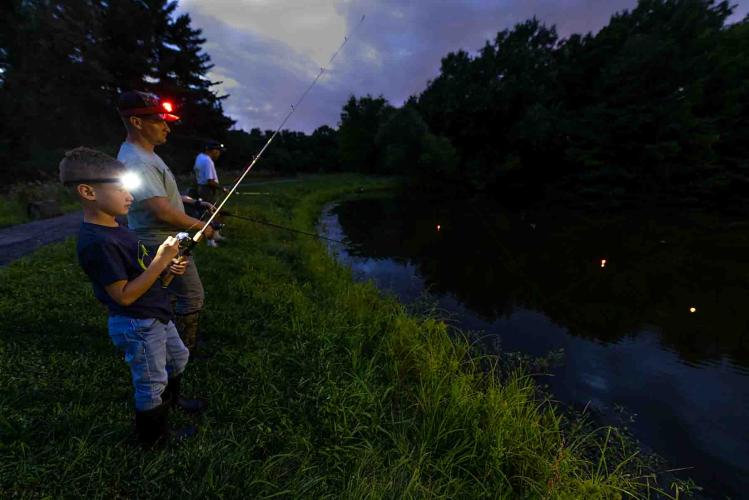
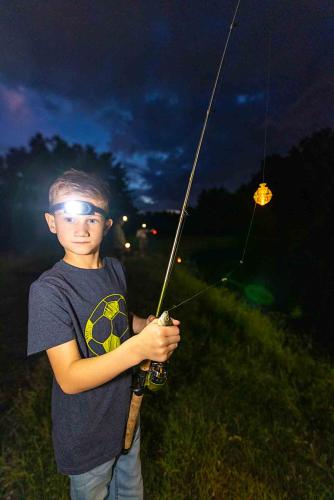
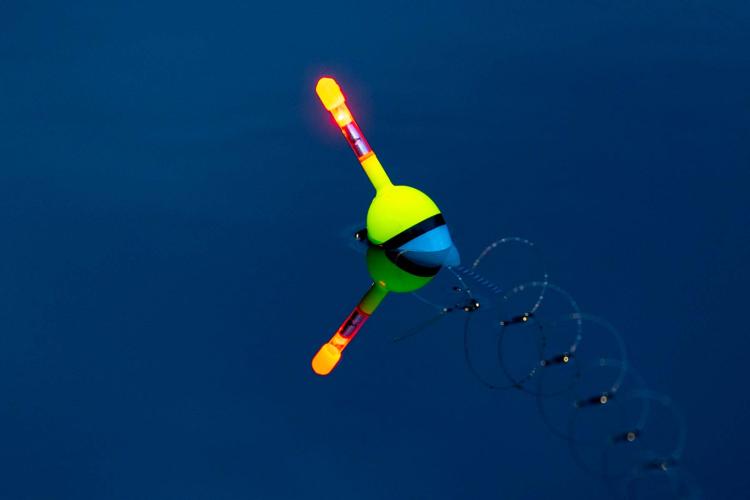
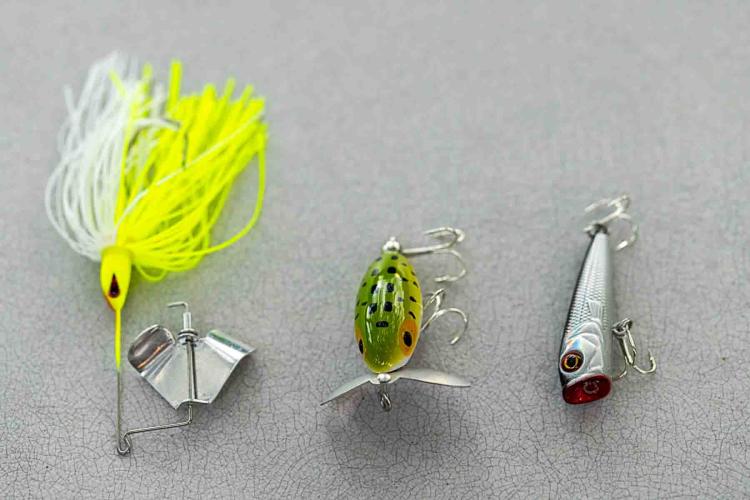
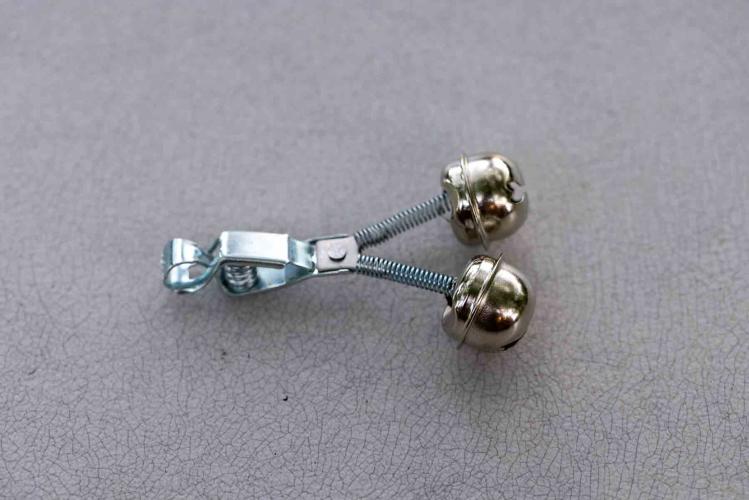
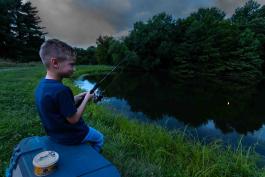
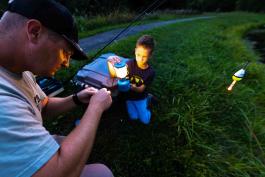
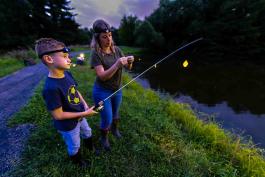
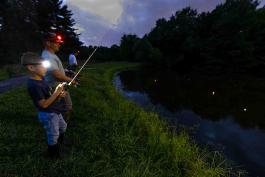
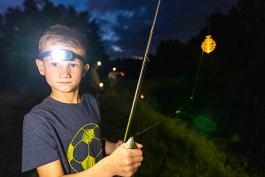
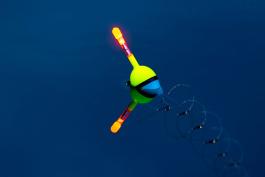
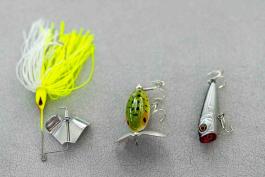
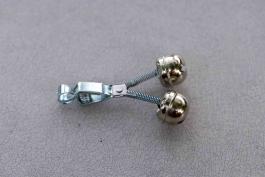
Also In This Issue

A gateway to discovering and helping conserve Missouri’s natural resources
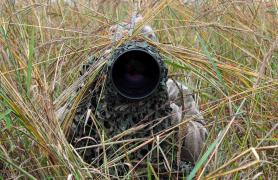
If you’re looking for a place to watch and photograph wildlife, head to the water
And More...
This Issue's Staff
Editor - Angie Daly Morfeld
Associate Editor - Larry Archer
Photography Editor - Cliff White
Staff Writer - Kristie Hilgedick
Staff Writer - Joe Jerek
Staff Writer – Dianne Van Dien
Designer - Shawn Carey
Designer - Marci Porter
Photographer - Noppadol Paothong
Photographer - David Stonner














